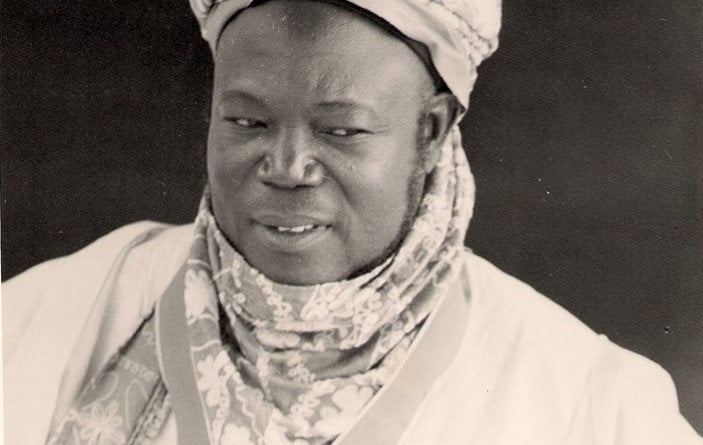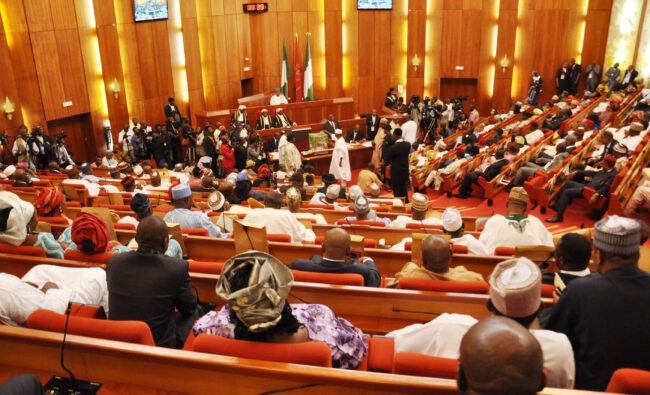BY AINOKO ISRAEL AYE-EBENE & DAUDA GARUBA
In 1954, Sir Ahmadu Bello, Sardaunan Sokoto became the first (and only) Premier of Northern Nigeria. In the 1959 independence elections, Sir Ahmadu Bello led the (NPC) to win a plurality of the parliamentary seats. The Sardauna’s NPC forged an alliance with Dr. Nnamdi Azikiwe’s National Council of Nigeria and the Cameroons (NPC) to form Nigeria’s first indigenous federal government which led to independence from Britain. In forming the 1960 independence federal government of Nigeria, Sir Ahmadu Bello as leader of the NPC, chose to remain Premier of Northern Nigeria and devolved the position of Prime Minister of the Federation to the deputy leader of the party, Sir Abubakar Tafawa Balewa.
The choice to remain as the Premier of Northern Nigeria was a conscious one; a keen understanding of the fact that the building block for national development is regional development. His major priority was to push for the realisation of a Northern region that can politically and economically compete with Western and Eastern regions of Nigeria. In 2018, this has proven both prescient and foresighted, as the clamour for restructuring of the federation to grant greater powers to the sub-national entities grows even louder. The North, as we know it, is too large and important a component of Nigeria to lag behind the rest of the country. If allowed to lag, it would constitute a dead weight and drag the rest of the country back.
Prof. Isah Odidi and Dr. Baba J. Adamu have in a well-researched compilation entitled Sir Alhaji Ahmadu Bello, the Sardauna of Sokoto: The seasons of a man’s life, summarised the approach of Sir Ahmadu Bello to governance as follows:
Advertisement
“The development strategy of the government under Ahmadu Bello may be summarized as trying to achieve regional parity through affirmative-action politics. This “northernization policy” was the basic agenda for development, and reflected a profound belief on the part of Ahmadu Bello that northerners had the capability for rapid development, if given the opportunity. Hence, education was a top priority, and the foundation of all other development efforts. Education and human resources were encouraged at all levels, and in all fields, and between 1954 and 1965 considerable progress was made. Importantly, Ahmadu Bello was able to diffuse the latent resentment and suspicion at the grassroots level among Muslims over the nature and purpose of western education. He was able to mobilize local leaders in the “war against ignorance,” and lay the educational foundations for the future. His crash programs in professional education in Kano and Zaria and Kaduna, and his insistence on the establishment of a northern university at a time when many felt it was premature, attest to his forward-looking view of development. He recognized that “catching up” would take at least a generation, and hence tried to provide the political climate wherein northern youth could be encouraged and even initially protected in their opportunities for education. The decade from the mid 1950s to the mid-1960s produced the first mass-educated efforts in the north, which in turn have produced the first broadly based generation of northern professional and educated leaders.”
Sir Ahmadu Bello pursued a program that sought to modernise the delivery of Islamic education in and integrate it with secular education in Northern Nigeria. He was pro-education and promoted an aggressive policy of building world-class educational institutions all across Northern Nigeria as well as incentivising attendance at these schools. He prosecuted a war against illiteracy (“yaki da jahilici”). Unfortunately, what we have witnessed in recent times in parts of Northern Nigeria is a reversal of the gains attained through the innovations pursued by Sir Ahmadu Bello in education and the all out war he prosecuted against illiteracy and ignorance. We are witnessing a reinstatement of pre-colonial attitudes towards secular education in parts of Northern Nigeria, which has led in part to the emergence of the phenomenon of ‘Boko haram.’
Under Sir Ahmadu Bello, various institutions were created to drive economic growth in Northern Nigeria. These included among several, the Northern Nigeria Development Corporation (NNDC), which was created to assist in industrial development in Northern Nigeria. The Bank of the North and the Northern Nigeria Investments Limited (NNIL), a partnership with the Commonwealth Development Corporation. Commenting further on Sir Ahmadu Bello’s approach to socio-economic development in their compilation, Prof. Odidi and Dr. Adamu wrote:- Beyond education, the top development priorities were agriculture, industry and infrastructure. Ahmadu Bello believed that agriculture was the backbone of the north. He took an active interest in farming throughout his life, and was particularly concerned with issues of water, and the introduction of new technology into grassroots-level farming. He believed that local farmers would seize the opportunities for self-Improvement if provided with resources and incentives. He also saw agriculture as providing a basis for industrialization in the north, especially in the cash-crop areas of cotton and groundnuts. His search for capital and technology in the areas of textile mills, groundnut oil mills, etc., was always accompanied by an insistence on indigenization of business opportunities, and local staff-development training schemes. He also saw the need for improved infrastructure and communications as part of the need to develop a productive agricultural economy, since without feeder roads and inter-city connections produce could not be moved to markets. His concern for infrastructure, however, was also related to strategic concerns about community consolidation, both within the north and at a national level.
Advertisement
The passion and commitment of Sir Alhaji Ahmadu Bello to the welfare of persons of Northern Nigerian descent and his pragmatic approach to the development of Northern Nigeria described above can be termed “the Ahmadu Bello Way” which summarises ensuring the competitiveness of Northern Nigeria within the larger construct of the Nigerian federation. To achieve this he united the ethno-religiously diverse people of Northern Nigeria under a single political agenda and led a cabinet that pursued the twin policies of mass education and capacity building of the citizens on the one hand, and economic development and industrialization of the region with agriculture as the back bone on the other. It is worthy of note that this approach to the growth and development of Northern Nigeria pursued by Sir Ahmadu Bello largely mirrored the approach to growth and development in Western Nigeria and Eastern Nigeria. Sir Ahmadu Bello, therefore ensured that Northern Nigeria did not lag behind the rest of Nigeria and in fact competed favourably with the rest of the country.
In our opinion, the present crop of Northern Nigerian elites who claim descent from the Sardauna’s political philosophy and claim legitimacy by his name have in fact departed from the Ahmadu Bello Way. By fixating almost exclusively on holding on to political power and office at the federal level, the present crop of Northern Nigeria elites, demonstrate a lack of passion and commitment to the people and the pragmatism depicted by the Ahmadu Bello legacy. Otherwise, they would have observed that the socio-economic and political landscapes have shifted both nationally and globally. They would have observed that political power and office alone serves only their selfish interest, and as such, grossly inadequate to lift the people of Northern Nigeria out of poverty and set them on the path of economic prosperity. They would have observed that Western and Eastern Nigeria (which is inclusive of today’s South) have evolved a system for growth and development that is based on the foundation of human capital development and almost independent of the federal government.
Coming out of the civil war, the itinerant tailor (called Obioma), who peddled his trade with a mobile sewing machine perched on his shoulder, were almost entirely persons from Eastern Nigeria as suggested by the name. Today, almost one hundred percent of the itinerant tailors are from Northern Nigeria. The commentary here is obvious – i.e. a metaphor of social mobility of two people in diametrically opposed directions. While the Northern elites were grabbing political power with single-minded focus, the Igbos ensured that every child either acquired education and thus become ‘employable’, or learnt a trade and became self-employed. The result, in half a generation, was that the people of Eastern Nigeria exited low paying menial tasks for higher paying employment, thus lifting thousands out of poverty. Western Nigeria has a similar socio-economic structure that emphasizes education and entrepreneurship.
Were he to be with us today, Sir Ahmadu Bello would evolved with these trends and promote a socio-cultural revolution in Northern Nigeria that would ensure that the North adopts the twin policies of education and entrepreneurship at the grassroots as the new way of competing. His passion and commitment for the people and pragmatic approach to life and governance would have led him to realise that political power by itself was inadequate to lift the people out of poverty. He would also have come to terms with the fact that in a constantly shifting socio-political landscape, political power at the center is not guaranteed to any section of the country. Therefore, a strategy that is hinged exclusively on holding on to political power at the center is either mischievous or myopic and unrealistic at best.
Advertisement
By way of conclusion, I join well-meaning Nigerians, especially those of Northern Nigerian descent, to implore their elites and leaders of their regions to return to the Ahmadu Bello Way. We must stop blaming other people for our travails and seize our destiny by the scruff of the neck. We must use our influence with the people to promote a socio-cultural revolution that would ensure that no child is left behind. We can christen it ‘No Child Left Behind’ or any other name, as long as it ensures that every child is employable or self-employed through education, vocational training and skill acquisition programs. This will provide a basis for regional and national development that would see the north realise its true potential.
Ainoko Israel Aye-Ebene is a lawyer, entrepreneur & development enthusiast, while Dauda Garuba is a researcher & development practitioner on questions of governance, security & development.
Views expressed by contributors are strictly personal and not of TheCable.
1 comments







Excellent Description and Analysis of Ahmadu Bello’s Vision! A needed challenge to the Northern Elites and Masses!